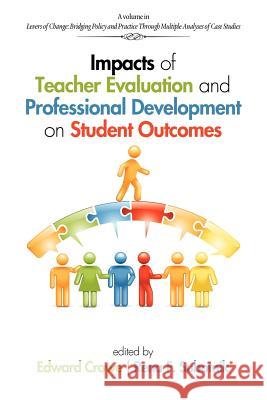Impacts of Teacher Evaluation and Professional Development on Student Outcomes » książka
Impacts of Teacher Evaluation and Professional Development on Student Outcomes
ISBN-13: 9781617358623 / Angielski / Miękka / 2012 / 252 str.
Impacts of Teacher Evaluation and Professional Development on Student Outcomes
ISBN-13: 9781617358623 / Angielski / Miękka / 2012 / 252 str.
(netto: 220,95 VAT: 5%)
Najniższa cena z 30 dni: 229,16
ok. 30 dni roboczych.
Darmowa dostawa!
The idea for this series developed from a forum organized by the American Psychological Association, the American Educational Research Association, the National Science Foundation, and the Center for Education at the National Research Council on multiple methods in education research. At this forum, Dr. Pat Forgione, (now former) superintendent of the Austin School District, hosted a dialogue with two scholars who were each asked to analyze a problem situation Forgione provided from his district. The audience responded very enthusiastically to this exercise and in the evaluations expressed the desire for more complementary analyses of real-world problems that could serve as a component of research training in education. It is our intention to have this volume and the others in the series serve as case-based teaching material for graduate classes in education policy, and to inform the work of researchers, practitioners, and policy leaders. This particular case study is designed to explore the extent to which a teacher evaluation system is effective. It also addresses the challenge of measuring student achievement gains when the students in question are already at the high end of the scale, a different-yet important-problem in an era when many concentrate on "low-hanging fruit" or students "on the bubble" between failure and marginal performance. By presenting a realworld case, various research methods for studying issues raised by the case, and the interchange among scholars engaged in this effort, this volume will allow educational policymakers and practitioners to decide if a proposed approach is compelling and relevant for their settings. Concurrently, a comparison of various research methods addressing a real school-based problem provides an important learning tool for the research community, and for those who study and make policy.We also believe that the case study and the research designs will be useful for those with responsibility for framing and funding a research agenda in education that utilizes strong research designs applied to topics that matter to student outcomes at all levels of the U.S. education system and at all levels of pupil performance. And finally, we hope that doctoral programs that seek to prepare the next generation of education researchers will find our approach helpful in their work.











